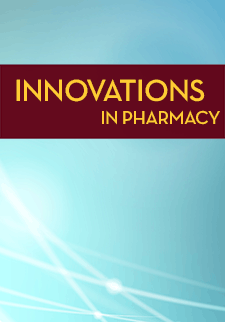Older Adult Perceptions of a Self-reported Medication Risk Questionaire: A Focus Group Study
Matthew J. Witry
Elizabeth H. Chang
Megan M. Mormann
William R. Doucette
Brand A. Newland
DOI: https://doi.org/10.24926/iip.v2i3.233
Keywords: medication risk, self-administered questionnaire, screening tool, mediation-related problem
Abstract
Background: Medication therapy management (MTM) has been shown to resolve medication-related problems and decrease health care expenses. Public and private health insurers, providers, and other stakeholders are looking for ways to involve patients in the MTM process. One option is to engage patients through the use of a medication risk questionnaire.
Objective: To investigate older adults' perceptions of completing a medication risk questionnaire and receiving a rating of their risk for medication-related problems.
Methods: Four, 75 to 90 minute focus groups were conducted using a semi-structured interview guide and copies of a medication risk questionnaire to collect qualitative data from 36 community dwelling older adults in Iowa, USA. Sessions were audio-recorded, transcribed, and analyzed thematically using an iterative process.
Results: The thematic analysis yielded a general theme of comprehensive medication reviews, and two themes on the medication risk questionnaire: "process and items" and "risk category reactions." Overall, participants were unfamiliar with pharmacist services beyond counseling. They were open to the questionnaire, but suggested it would be more useful as a topic for discussion with a provider than to screen patients. Despite their medication risk rating, most did not express interest in seeking a comprehensive medication review based on the result of the questionnaire as they considered themselves at low risk for problems.
Conclusions: Using a medication risk questionnaire as a topic for discussion could provide health insurance plans or providers an opportunity to increase beneficiary familiarity with MTM. These beneficiary perspectives may be useful to health plan administrators and MTM providers as they pursue new ways to involve patients in the medication management process.
Type: Student Project


